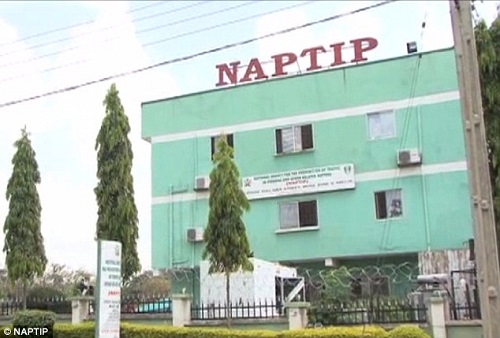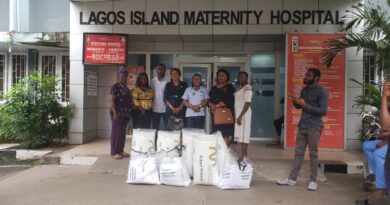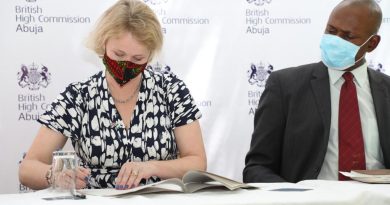NAPTIP DG: War Against Human Trafficking Needs Input Of All
By Bukar Bolori
The Director General, National Agency for Prohibition of Trafficking in Persons (NAPTIP), Prof. Fatima Waziri -Azi has called for input of all in the fight against human trafficking.
Speaking in Abuja at the Launch of the Compendium of State Task Forces on Human Trafficking, Waziri-Azu said: “We must all remember that to control human trafficking, we must equally recognize the fact that it is a battle that no one entity can tackle alone and collaboration serves as the backbone of a successful fight against this crime for several reasons.”
She explained that human trafficking is a highly organized and intricate network of criminals. It operates within and across borders, making it difficult for any one entity to address effectively. And only through joint efforts can we dismantle these criminal networks and bring the perpetrators to justice.
She lamented that human trafficking victims often face multiple challenges when seeking help and support, insisting that collaborative efforts between government and NGOs can ensure that victims receive the necessary protection, and rehabilitation that they need, stressing that: “By working together, we can provide a safety net that helps survivors rebuild their lives and find hope for a brighter future.”
She noted that raising awareness and educating communities is crucial in preventing trafficking, adding that: “Collaboration allows us to pool our resources, expertise, and outreach capabilities to create comprehensive awareness campaigns. By joining forces, we can empower individuals to recognize the signs of trafficking, thus preventing potential victims from falling prey to the traffickers’ schemes.”
Waziri-Azi said: “Let me particularly emphasize the need to strategically partner with traditional institutions because the role traditional rulers play in the society due to their influence as custodians of cultural norms and values cannot be overstated. With their extraordinary moral authority, they are able to influence thinking, foster dialogue and set priorities for members of their communities and advocate for social and legal change.”
She added that: “We must recall that human trafficking is a moral crisis that demands a united response and collaboration is the key that unlocks our collective strength in this battle. Let us put aside our differences and work together with determination and compassion. Together, we can create a world where human trafficking is nothing but a dark chapter in history. Remember, our success in this fight depends on the strength of our unity.”
She explained that: “This compendium serves as a repository of information and resources that would be useful in your work. Most importantly, no matter how fantastic an initiative is without deliberate and targeted funding that initiative will die a natural death. Which is why funding task forces is of paramount importance.
“As this is an essential investment in our collective commitment to combatting human trafficking. Only by providing the necessary financial resources can we build a robust response to the problem and strive towards a world where exploitation has no place.”
Also speaking at the occasion, the United Nations Office on Drug and Crime (UNODC) Team Leader, Trafficking in Persons/Smuggling of Migrants Portfolio, Abimbola Adewumi, who was actively involved in the drafting of the compendium said the document would build the capacity of State Task Forces (STFs) to chronicle their journey, showcase the milestones and achievements of STFs in combatting human trafficking in Nigeria to enhance state government interest and the drive for sustainable solutions.
She noted that it documents the peculiarity and dimensions of human trafficking in the states to inform tailored interventions by project implementers.




